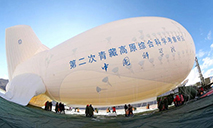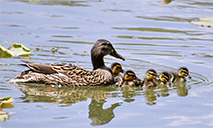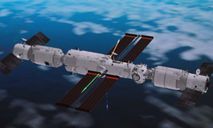Interview: NATO expansion root cause of Ukraine crisis: former senior French official
GENEVA, May 16 (Xinhua) -- The attempt to extend North Atlantic Treaty Organization (NATO) membership to Ukraine, which Russia perceives as a security threat, has long been opposed by France and Germany. Meanwhile, Finland and Sweden are knocking on NATO's door.
All these developments contribute to a missed opportunity to propose an inclusive European security architecture to Russia, and according to Pierre Conesa, a former senior French Defense Ministry official, therein lies the source of the ongoing "Ukrainian crisis."
The consequences of all these, he told Xinhua in a recent interview, are felt more strongly by Europe than by the United States. The diplomats and political decision makers must also be mindful of the need to maintain dialogue with Russia, which remains an important partner, he said.
NATO EXPANSION DISTURBANCE FOR MOSCOW
If Finland and Sweden join the military alliance which both countries have said they aim to do -- it would end their long-standing policy of military non-alignment.
According to Conesa, while their adhesion will take some time, the two countries' eventual NATO membership will alter the balance of power in NATO's favor.
It will become possible for NATO to move nuclear weapons to Finland's 1,300-km border with Russia, he said, and the alliance may also decide to deploy submarines on the maritime routes near Russia's ice-free port of Murmansk, aggravating that country's already limited access to warm water sea ports.
NATO's previous five enlargement rounds have brought the western military alliance more than 1,000 km closer to the Russian border in little more than two decades.
According to Conesa, Moscow has clearly considered those enlargements "offensive," and in light of that the current tensions come as no surprise.
"Obviously, one of the core principles of NATO is to ensure its members' nuclear security, meaning that it can install nuclear missiles along the Russian border, which was not the case previously," he said.
"So, the Russian sensitivity was felt much stronger by the Europeans than by the Americans, and we see now that the U.S. administration is rather warlike," Conesa said.
The United States is "more offensive" in the Ukrainian crisis than the Europeans, he noted.
"The Americans wanted us to immediately integrate Ukraine in its entirety into NATO, and it was the French and the Germans who halted the idea, saying, non, beware, it's very sensitive for Russia, and it must not be done so fast. Now in effect we witness the prediction coming true," Conesa said.
According to Conesa, for lack of an alternative to implementing the principle of indivisible security, NATO's enlargement was "each time a disturbance for Moscow."
COLLECTIVE SECURITY A SOLUTION
Conesa believes that the conflict could have been avoided if Russia had been successfully involved in a European system of collective security.
"NATO expansion was in effect a way of viewing Europe as a continent the security of which will be ensured by the military alliance, but we did not propose, meanwhile, a European architecture of security in which Russia could also have its place and say," he said.
Conesa said that a diplomatic modus vivendi could still be found to achieve peace in Ukraine, but for this to happen, Russia's security concerns must be heeded.
"We need to work together with the Russians to design a general architecture of security, we must continue discussing with the Russians all these projects and problems. We must tell them that you are partners, we understand your security concerns."
WARMONGERS' TOXIC INFLUENCE
Conesa decried the toxic influence of what he called the military-intellectual complex. This, he said, includes a host of public figures who seek to sell war as a necessity.
He described these warmongers as extremely pernicious to diplomacy, which would necessitate dialogue with Russia.
"The diplomats and the political decision makers must take things into their hands, reclaim the authority and engage with Moscow, which is what (French) President (Emmanuel) Macron is trying to do, to maintain the link with Russia so that when the negotiation terms are ready, we can truly have closure," Conesa said.
In Conesa's opinion, the rise of Russophobia is the result of these "dangerous" and dishonest discourses. For him, the reports on the crisis suggest that the conflict is "limited to certain locations," yet the scale of the conflict is potentially exaggerated.
For Conesa, the military-intellectual complex has an agenda, and such information must consequently be treated with caution.
"The United States' Guantanamo prison still holds more than 30 individuals who were arrested during the Iraq and Afghanistan invasions. They have been held without a trial. Do you think we are concerned at all about them, do you think we will ask them if they are treated humanely?" he said.
Photos
Related Stories
- Sweden to apply to join NATO, says PM
- Putin says Russia would respond to expansion of NATO military infrastructure into Finland, Sweden
- Russia to strengthen border with Finland if NATO deploys striking weapons
- Finland makes official decision to apply to join NATO
- NATO expansion with Finland, Sweden’s bid tips balance, adds uncertainty to Europe
Copyright © 2022 People's Daily Online. All Rights Reserved.










